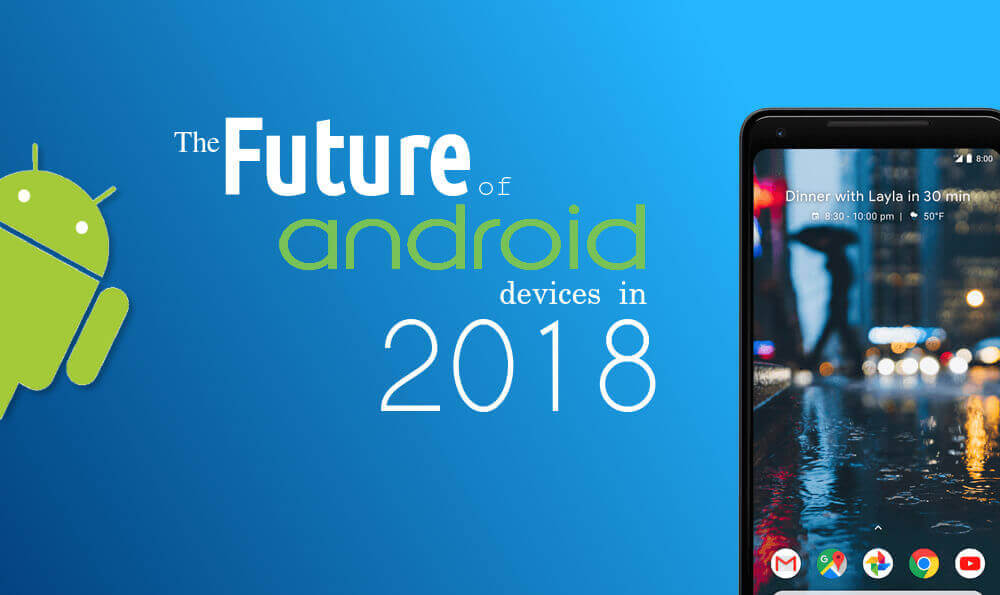The key point most Android vs iOS arguments miss
In this blog, The key point most Android vs iOS arguments miss. In my approximately 97 years of covering Android, I’ve heard it all:
- “You can’t have privacy if you use Android!”
- “You can’t have security if you use Android!”
- “You can’t get upgrades if you use Android!”
- “You can’t have a good user experience if you use Android!”
- “YOU CAN’T BE ONE OF THE COOL KIDS IF YOU USE ANDROID!”
All right, so that last one might be a bit of an exaggeration (though only a little). But that aside, these are all shockingly common sentiments you hear not only from tech enthusiasts but also from people who write about this stuff for a living. And I’m here to tell you they’re all equally misguided.
Now, don’t get me wrong:
There’s a nugget of truth to every one of those statements (even the last one; hey, we’re all proud nerds here, right?). Lots of folks using Android genuinely don’t have the most optimal privacy scenario or the most secure setup imaginable on their phones. A depressingly high number of Android phone-owners don’t get timely and reliable software updates. And, yes, a huge amount of Android users have horrible user experiences (whether they actively realize it or not).
But treating all of those issues as blanket condemnations of Android itself — as inherent and unavoidable flaws with the platform — overlooks one key point. It’s a foundational reality of Android that’s been at the system’s core since the start, and keeping it front of mind changes the entire view of what Android represents.
The best way to sum it up is with two complementary words
Choice and control: Two platforms, two approaches for people accustomed to the Apple universe, the notion of choice and control within a smartphone environment can be a funny concept to grasp. When you buy an iPhone, for better or sometimes for worse, you get The Apple Way the Apple way of balancing privacy with function, the Apple way of providing Apple-controlled software updates to Apple-made devices, the Apple way of forcing you to see a static grid of all your app’s icons on your home screen all the time, and the Apple way of having to use Apple apps as your default browser, email service, mapping service, and so on. The key point most Android vs iOS arguments miss.
And so when people who are accustomed to that sort of approach think about Android, they frequently assume Android operates in a similar manner — that whatever they read about or see on, say, a Samsung phone is The Android Way. The problem is that there isn’t an “Android way” — not in any Apple-esque, platform-wide level.
Sometimes, that choice and control lands in the hands of you, the user. Other times, it’s in the arms of the company that made the device. Either way, just like in the Apple universe, the result is a mix of positives and negatives.
Same level of choice and control
Critically, that same level of choice and control is a huge part of what allowed Android to catch on initially and then grow into its position as the world’s most widely used operating system. In the early days of Android, it was the fact that phone-makers and carriers alike could bring their own unique flavors and business interests into the software that convinced so many players to sign on. And still today, that flexibility is a powerful part of what makes Android appealing to companies like Samsung, which want to push their own profit-turning services and to handle software the way they see fit just as much as they want to hawk hardware.
It’s a mix of pros and cons, particularly from the perspective of someone who actually uses these products. But that brings us back to the statements we went over at the start of this story — the misleading generalities about areas like privacy, security, upgrades, and user experience on Android.The key point most Android vs iOS arguments miss.
Choice and control within Android
We’ll start with privacy — an area where Apple really likes to act superior (at least, when the narrative fits). But despite what the casual sweater-wearing executives on stages keep saying, the reality isn’t actually that it’s impossible to have dialed-up privacy on Android. It’s simply that Google’s business model and the services Google provides rely upon the responsible use of a certain amount of data in order to operate. And if you don’t want your data used in that way, you can make an educated decision to change it — at a certain cost, of course, when it comes to functionality.
Now, the flip side is that most Android privacy matters operate via a system of defaults — and most people aren’t gonna take the time to navigate the labyrinth of related settings. What’s more, most people would probably pick the functionality they get as a result of their data being used over the lower-functionality, higher-privacy alternative, anyway. But the choice is there, as I lay out in my new Android privacy guide; it’s just up to you to embrace it.
Security Concerns
What about security? Well, it’s true that Android does allow you to install apps from external sources — the horror! — but, y’know, it’s also a choice. Most typical phone-owners will never wander into a shady-looking forum in some dusty corner of the web and download an app posted by a guy named Ned. Even if they do attempt to do that, they’ll have to go through multiple layers of warnings and overrides before their phone will let them. And still then, their system will scan the file to look for any known issues and identify any red flags. It’s essentially an enhanced and significantly lower-risk version of the same thing you get when using a regular computer. And just like in that environment, a little common sense goes a long way. The key point most Android vs iOS arguments.
That brings us to the realm of updates — both OS-level and the monthly security patch complements (both of which are equally important when it comes to optimal privacy and security protection, by the way). It’s true that most Android device-makers do an embarrassingly bad job at providing software updates to their devices and that you as the user are the one who suffers from that negligence, even with the way Google has made OS updates themselves less all-important on Android than they are on iOS. We talk about that constantly in these quarters.
And that leads us to the biggest point of all in this discussion
The Pixel, as I’ve put it before, is essentially the closest thing to an iPhone-like equivalent within the Android world. It’s a device made by the company responsible for the operating system; supported directly by that same company, with no middlemen or mitigating forces involved; and with an unmeddled version of that company’s widely lauded vision for what the user experience should be — a vision that eschews confusing redundant apps competing for your attention and creates an ecosystem-wide consistency in design. The key point most Android vs iOS arguments.
Unlike with iOS, though, on Android, that isn’t the only choice. You can have it if you want it, but it’s a decision for you to make. There’s no shortage of diversity within the platform, and if you find another phone’s size, style, or stamina to be more appealing, you can have that, too. It ultimately just comes down to a matter of priorities — and a matter of educating yourself about the possibilities.
Conclusion
Android and iOS have grown increasingly similar over the years, but the foundational difference of choice and control continues to be a significant factor that separates ’em. Neither platform’s approach is inherently better, but they are strikingly different. And the sooner we can all internalize that, the sooner we can stop having silly discussions that revolve around an inaccurate assumption.
I hope you like this blog, The key point most Android vs iOS arguments miss. To learn more visit HawksCode and Easyshiksha.




